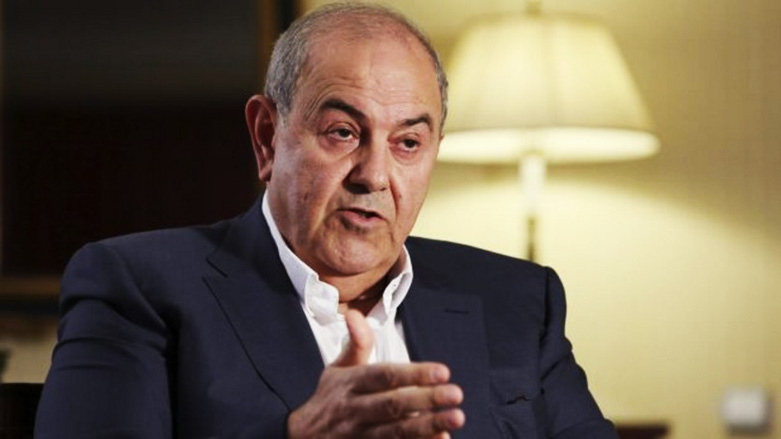Allawi's party 'refused to engage' with sectarian groups in post-election talks

RBIL (Kurdistan 24) – As the final results of Iraq's disputed national election appear to be settled and negotiations to form the next government continue, Iraqi Vice President and former Prime Minister Ayad Allawi said that his party "refused to engage in any understandings or alliances based on sectarianism."
Allawi called on "political forces and winning lists to renounce sectarianism and sectarian subjugation and work to unify efforts behind a comprehensive national project," in a statement released on Thursday.
He also stressed the need to make "the first emphasis on the government program and reform plans, before addressing the names eligible for government posts."
Allawi's al-Wataniya (National) coalition is Iraq's largest Sunni-majority political group and was listed on August 11 by Prime Minister Haider al-Abadi's Nasr (Victory) coalition as one of the main factions with whom an agreement to form a cabinet had been reached. The others mentioned were cleric Muqtada al-Sadr’s Sairoon coalition, Ammar al-Hakim’s al-Hikma (Wisdom) party, and the Kurdistan Democratic Party (KDP).
Conspicuously absent were the State of Law, led by former Prime Minister and Allawi's longtime political rival Nouri al-Maliki, and al-Fatih, led by Hashd al-Shaabi militia leader Hadi al-Amiri. Maliki has often been charged with promoting pro-Shia-policies during his tenure as Iraq's top politician and Amiri's Badr Organization militia has a richly-documented history of openly sectarian acts, including mass killings, displacement, and torture.
At a press conference on Tuesday, Amiri said that he would not allow the US to choose Iraq's next prime minister, threatening, “If you impose any name on us, then I will overthrow his government within two months.”
The election, held on May 12, was marred by widespread allegations of fraud. With popular calls for a manual recount, the Federal Supreme Court ordered a partial one which was completed last week. On Aug. 9, Iraq's electoral commission announced that there was no significant change from results it had initially announced and that all winning blocs maintained the same number of seats.
On Thursday, the commission delivered the final results to the Supreme Court for ratification. Within 15 days of the court's final approval, the newly-seated parliament members are charged with electing a new speaker and two deputies in their first session. After a new speaker is in place, lawmakers have 30 days to elect, by a two-thirds majority, Iraq's new president, who is then given 15 days to nominate the prime minister from the largest bloc in parliament.
The prime minister, in turn, will have another 30 days to form his cabinet, with ministers then referred back to parliament for individual approval. If the effort is unsuccessful, the president has yet another 15 days to nominate another prime minister to repeat the process of forming a cabinet.
